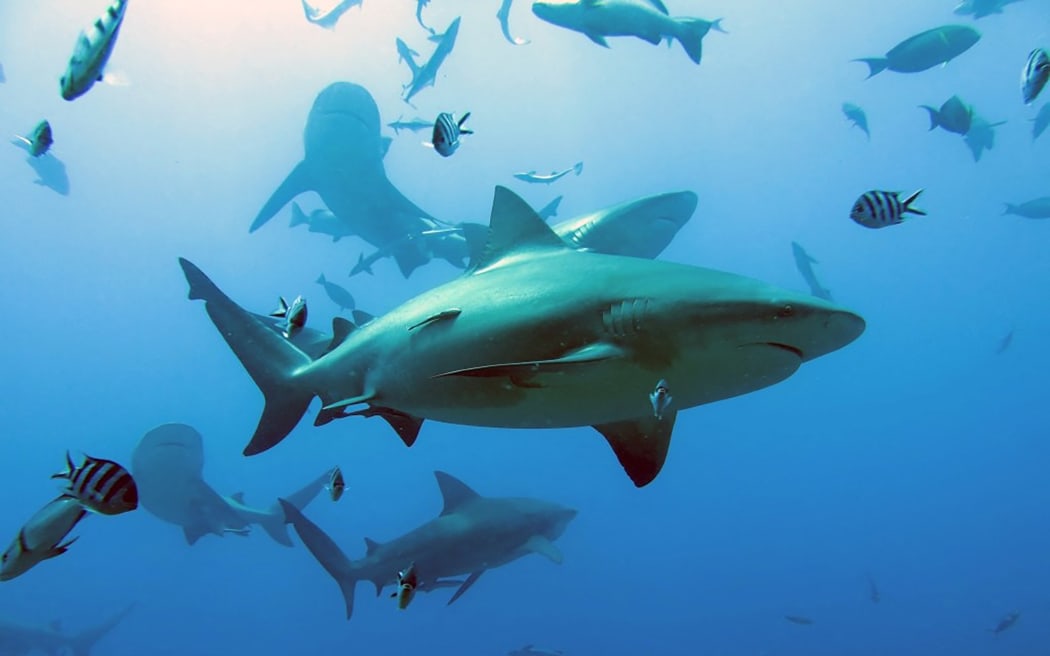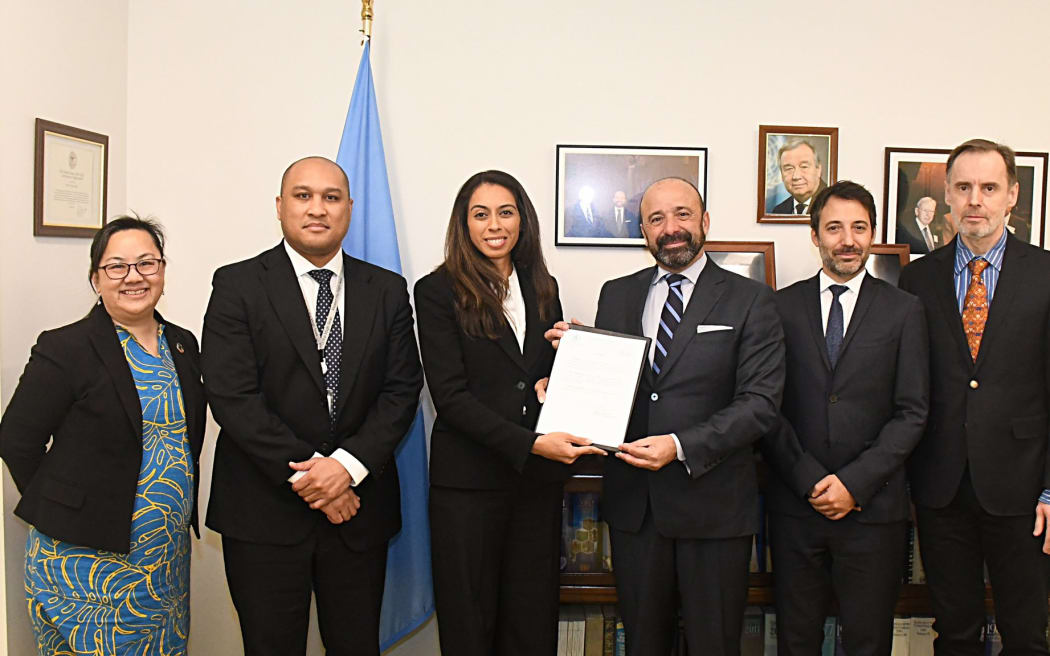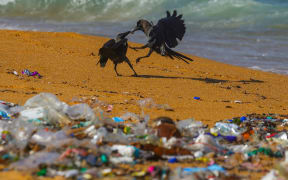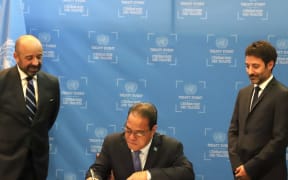
Bringing the Ocean Treaty to life will mean protection for a vast array of marine life, says Greenpeace Aotearoa. Photo: AFP / Colin Simpfendoreer/Simon Fraser University/James Cook University
The global environmental advocacy organisation, Greenpeace, has welcome Palau's move to become the first nation in the world to officially ratify the UN Ocean Treaty.
Greenpeace spokesperson Laura Meller says Palau's already shown leadership in opposing deep-sea mining in the Pacific Ocean and have now set the bar for what it means to be an ocean champion.
Conservationists consider the landmark ocean protection pact as the most significant multilateral environmental deal since the 2015 Paris Climate Agreement.

Palau UN Permanent Representative Seid, third from left, with UN Under-Secretary-General Miguel de Serpa Soares. Palau becomes the nation in the world to ratify and deposit the instrument for the #HighSeasTreaty. Photo: UN Photo
Adopted in June 2023 and signed by 84 countries in September 2023, the treaty will only enter into force once it is ratified by at least 60.
Greenpeace Aotearoa said the move sets down a challenge for New Zealand to follow suit and back meaningful ocean protection.
"A vital tool to reverse the ocean crisis, the Treaty is the most significant multilateral environmental deal since the 2015 Paris Climate Agreement," the environmental NGO said in a statement.
"We are thrilled to see Palau leading the ratification process demonstrating that it can be done and paving the way for the creation of a network of global ocean sanctuaries - including in the Pacific," says Greenpeace Aotearoa oceans campaigner Ellie Hooper.
"Bringing the Global Ocean Treaty to life will mean protection for a vast array of marine life from coral reefs to humpback whales and seabirds like the antipodean albatross," she said.
"Pacific nations continue to demonstrate global leadership from the frontlines of the climate and biodiversity crisis.
"This sends a strong message to other countries in the region, including the New Zealand government, that the time to protect the ocean and all the life it supports is now," Hooper said.
PR Amb Seid,Counsellor Mitchell, Advisor JoanYang pose w/ USG deSerpa Soares as makes history by being the 1stcountry in the to ratify&deposit the 1stinstrument for the #HighSeasTreaty is committed to ocean leadership&paving the way to bring the Treat to life
— Permanent Mission of Palau (@PalauMission) January 24, 2024
:UNPhoto pic.twitter.com/0z90Q9qsOH



